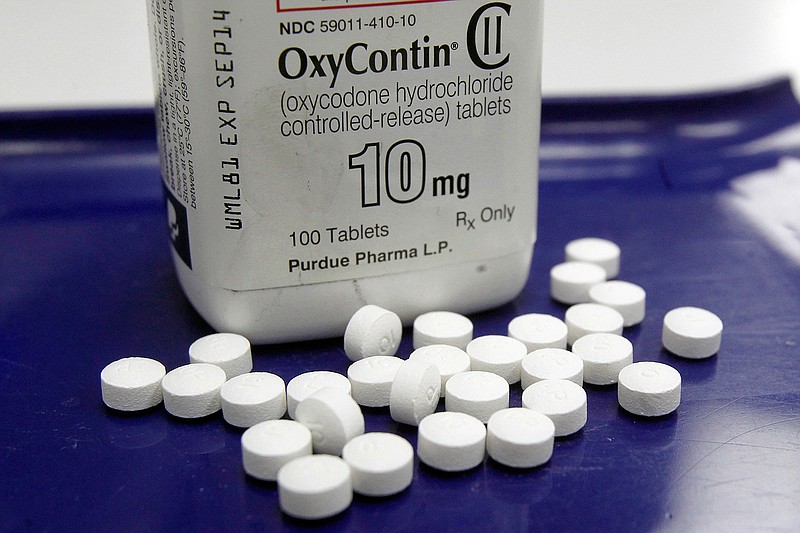BOSTON-Massachusetts sued the maker of prescription opioid painkiller OxyContin and its executives on Tuesday, accusing the company of spinning a "web of illegal deceit" to fuel the deadly drug abuse crisis while boosting profits.
Purdue Pharma is already defending lawsuits from several states and local governments, but Massachusetts is the first state to personally name the company's executives in a complaint, Attorney General Maura Healey said. It names 16 current and former executives and board members, including CEO Craig Landau and members of the Sackler family, which owns Purdue.
The lawsuit alleges Purdue deceived patients and doctors about the risks of opioids, pushed prescribers to keep patients on the drugs longer and aggressively targeted vulnerable populations, like the elderly and veterans.
"Their strategy was simple: The more drugs they sold, the more money they made, and the more people died," Healey said.
Purdue, based in Stamford, Connecticut, said it "vigorously" denies the allegations.
"We share the attorney general's concern about the opioid crisis," the company said in a statement. "We are disappointed, however, that in the midst of good faith negotiations with many states, the Commonwealth has decided to pursue a costly and protracted litigation process. We will continue to work collaboratively with the states toward bringing meaningful solutions," it said.
Purdue agreed to pay $19.5 million in 2007, but did not admit wrongdoing, to settle lawsuits with 26 states-including Massachusetts-and the District of Columbia after being accused of aggressively marketing OxyContin to doctors while downplaying the risk of addiction.
Massachusetts' lawsuit, which was filed in the Suffolk Superior Court, alleges that Purdue's leadership encouraged the company's "deadly misconduct" while lining their pockets. The sale of more than 70 million doses of prescription opioids in the state over the last decade brought in more than $500 million for the company, Healey says.
"It was Purdue's executives who led and directed this illegal business model, leading to addiction and deception to enrich a few while leaving a path of devastation and destruction in its wake," she said.

